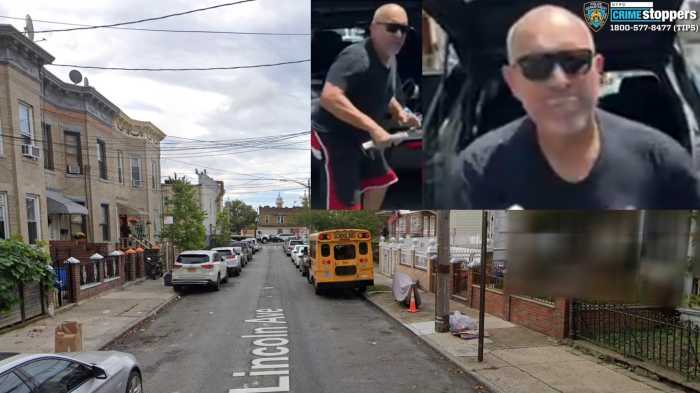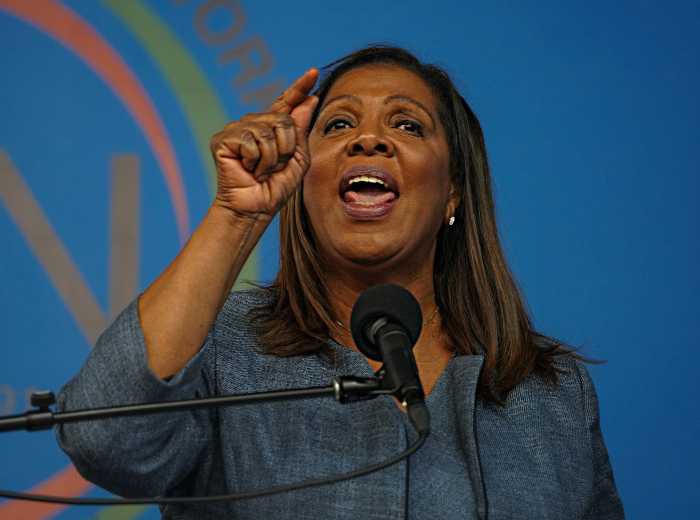
New York City drivers who rack up speed and red light camera tickets could see their cars booted or impounded under new legislation aimed at getting reckless motorists off the road.
The legislation, called the Reckless Driver Accountability Act, outlines three policy measures in two bills to bring more teeth to the city’s traffic enforcement camera system, allowing the city to do more than just issue summonses that have no impact on driving privileges.
The measures are in response to the Park Slope collision in March that killed two small children and injured their mothers, including Ruthie Ann Miles who subsequently lost her unborn child.
“There are thousands of reckless drivers who speed, run red lights, fail to yield to pedestrians over and over again with little or no consequence for putting the lives and health of their neighbors at risk,” said Brooklyn Councilman Brad Lander, the bills’ sponsor who plans to introduce the legislation at City Hall on Thursday.
“Right now the penalty for traffic violations documented by cameras — running a red light, or speeding in a school zone — is just a $50 fine for each violation regardless of how many violations a driver racks up,” Lander added.
Under the act, car owners who receive four camera violations within a year would be sent a warning notice and offered the opportunity to enroll in a Driver Accountability Course for a “small fee,” Lander said.
A driver who racks up a fifth violation in a year would be required to enroll in the course within 10 days of receiving a notice from the city. If the driver does not enroll in that time, their vehicle will be subject to impoundment.
The act would rely on the expansion of the Driver Accountability Program currently offered in Red Hook and on Staten Island. It would also require the city to produce an annual study on dangerous driving that determines which driving behaviors are associated with traffic crashes, injuries and fatalities, and includes recommendations to address them.
While it might be more direct to heap penalties on driver’s licenses, those laws are handled by state lawmakers. Lander said Albany has not shown a strong interest in addressing street safety in the city.
Dorothy Bruns, the driver involved in the fatal Park Slope crash, had been issued five traffic enforcement camera tickets last year. Her car was one of about 25,881 vehicles that had received at least five camera violations in 2017, about 1 percent of the roughly 2.1 million vehicles registered in the city.
Brooklyn District Attorney Eric Gonzalez said the Driver Accountability Program, which Lander and Gonzalez’s late predecessor Ken Thompson helped launch three years ago, allows motorists to realize that when they drive dangerously, they’re “operating a deadly weapon.”
The program has welcomed 500 drivers arrested for traffic offenses in three years, according to Gonzalez. Ninety-seven percent of those drivers completed the program and 40 percent of those attendees went on to avoid related arrests or infractions, said Gonzalez, who joined Lander and other street safety advocates in support of the legislation at a news conference Tuesday in City Hall Park.
“Instead of just paying a fine or getting some kind of low-level sanction, what they need to do is actually take part in group therapy and take part in sessions so they can understand the harm that they’re creating and causing to our society,” Gonzalez said. “They have to go back and reflect upon their behavior; they have to make commitments to drive in safe ways.”
Even though the legislation looks to circumvent Albany inaction, it relies on the assumption that the state will extend the city’s school zone speed camera program, which allows the city to install cameras at 140 school zones. That program is set to expire at the end of the month. It’s not completely clear if state government will act before the city has to turn off its cameras.
Peter Ajemian, a spokesman for Gov. Andrew Cuomo, said in a statement that “there are a variety of proposals in the legislature that we would of course review.”
A mayoral spokesman said the administration will review the legislation when it’s introduced.





























